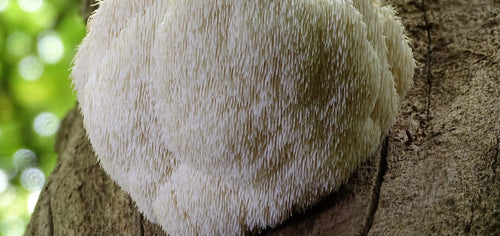What is Ashwagandha?
Ashwagandha, botanically known as Withania somnifera, is an adaptogenic herb popular in Ayurvedic medicine. It has been used for over 2,500 years for its abilities to help the body and mind adapt to stressful conditions.
In India, it’s often referred to as having the “strength of a stallion” and is traditionally used to strengthen the immune system after illness. It’s also known as “Indian ginseng” because of its ability to enhance stamina and work as a natural stress reliever.
This herb’s stress-protective abilities are what makes it so popular in the UK and elsewhere. Like all adaptogenic herbs, it helps the body maintain homeostasis in moments of emotional or physical stress.
Ashwagandha has a broad range of therapeutic effects which are derived from its active compounds. These include withanolides and alkaloids, which contribute to the herb’s health benefits. Ayurvedic experts emphasise there are more synergistic effects from ashwagandha’s active compounds than withanolides alone, which are believed to be accountable for the multiple beneficial effects of ashwagandha.
More recently scientists have found that ashwagandha possesses anti-inflammatory and antioxidant properties that play a major role in its therapeutic benefits.
What are some of the key health benefits of ashwagandha?
1. Relieves Adrenal Fatigue
Your adrenals are endocrine glands that are responsible for releasing hormones, specifically cortisol and adrenaline, in response to stress. If your adrenals are overtaxed due to an overabundance of emotional, physical or mental stress, this can lead to a condition referred to as adrenal fatigue. Ashwagandha may be useful in supporting adrenal function and helping overcome adrenal fatigue. (1)
2. Combats Stress and Anxiety
One of the most well-known ashwagandha benefits is its ability to work as a natural remedy for anxiety. It has been found to improve concentration, mental health, vitality and fatigue in people using ashwagandha. (2)
3. Improves Depression
Not only does ashwagandha benefit people who deal with anxiety and chronic stress, but it can also be helpful for those who experience signs of depression. The herb increases resistance to stress, and studies show that it improves people’s self-assessed quality of life. Ashwagandha can be used as a mood stabiliser in clinical conditions of depression. (3)
4. Reduces Brain Cell Degeneration and Improves Memory and Cognition
Physical, emotional and chemical stress can be damaging to the brain and nervous system. Recent research shows that ashwagandha is more than just a stress reliever - it can also protect the brain from cell degeneration, which can lead to neurodegenerative diseases like Alzheimer’s and Parkinson’s.
One of the main reasons that it is so effective at healing the brain is because it contains powerful antioxidants that destroy the free radicals that cause aging. Withaferin A and withanolide D are the two main withanolides in ashwagandha that are used to improve cognitive function, boost memory and other cognitive skills. (4)
Find your Zen with Ashwagandha
We use a branded Ashwagandha extract called KSM-66® in our Zen blend (110mg), known as the "Gold Standard" extract, which is the highest concentration full-spectrum root extract available today. Proven to have a high bioavailability, it’s been shown to alleviate anxiety, enhance memory & cognition and help the body adapt to physical & mental stressors. Our Ashwagandha contains 5% Withanolides.
You can read more about Ashwagandha here. There have been many clinical studies on KSM-66® Ashwagandha extract showing the many benefits of this wonderful root adaptogen, which you can read here.
References
1. Adaptogenic and Anxiolytic Effects of Ashwagandha Root Extract in Healthy Adults: A Double-blind, Randomized, Placebo-controlled Clinical Study. Jaysing Salve, Sucheta Pate, Khokan Debnath, and Deepak Langade, (2019), Cureus.
2. A prospective, randomized double-blind, placebo-controlled study of safety and efficacy of a high-concentration full-spectrum extract of Ashwagandha root in reducing stress and anxiety in adults. Chandrasekhar, K., Kapoor, J., & Anishetty, S. (2012). Indian journal of psychological medicine, 34(3), 255.
3. Anxiolytic-antidepressant activity of Withania somnifera glycowithanolides: An experimental study. S K Bhattacharya, A Bhattacharya, K Sairam, S Ghosal, (2001). Phytomedicine 7(6):463-9.
4. Efficacy and Safety of Ashwagandha (Withania somnifera (L.) Dunal) Root Extract in Improving Memory and Cognitive Functions Choudhary, D., Bhattacharyya, S., & Bose, S. (2017). Journal of Dietary Supplements, 1-14. Chicago.





















